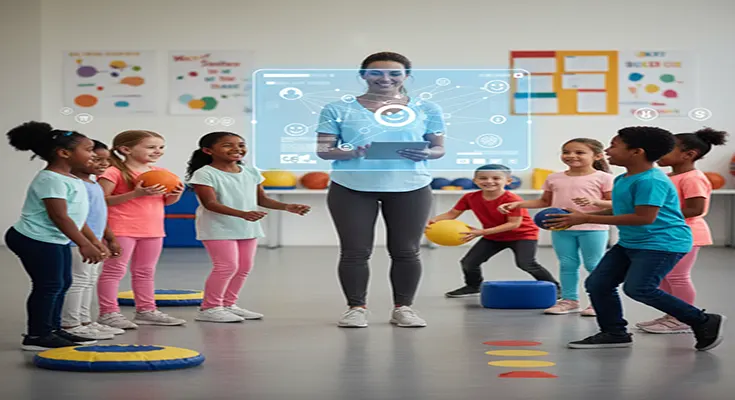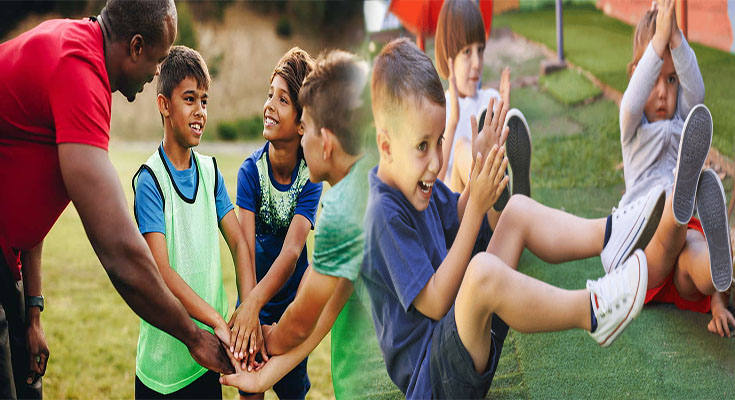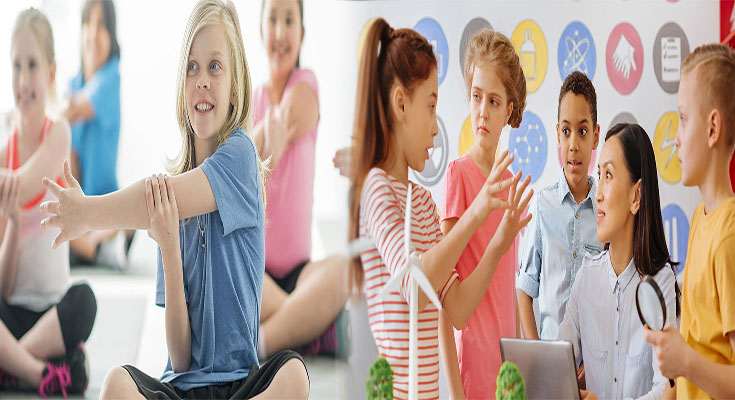
Inclusive PE Games that Promote SEL for Neurodivergent Students
The core of an inclusive PE program is the “STEP” tool—adjusting Space, Task, Equipment, and People. When games are designed with these adjustments in mind, they move beyond physical fitness and begin to address CASEL’s core competencies: self-awareness, social awareness, and relationship skills.
1. Collaborative Balloon Polo
Unlike traditional hockey or soccer, Balloon Polo slows down the pace of play, reducing the “fight or flight” response often triggered by fast-moving objects.
- The Game: Students use foam pool noodles to keep a balloon aloft and move it toward a wide goal (like a hula hoop).
- SEL Impact: This game requires constant verbal and non-verbal communication. Students must regulate their physical force—hitting too hard sends the balloon out of reach—fostering self-management and impulse control.
- Inclusive Tip: Use “jingling balloons” (balloons with a small bell inside) for students with visual impairments.
2. The “Mirroring” Movement Challenge
Neurodivergent students often struggle with …
Inclusive PE Games that Promote SEL for Neurodivergent Students Read More



